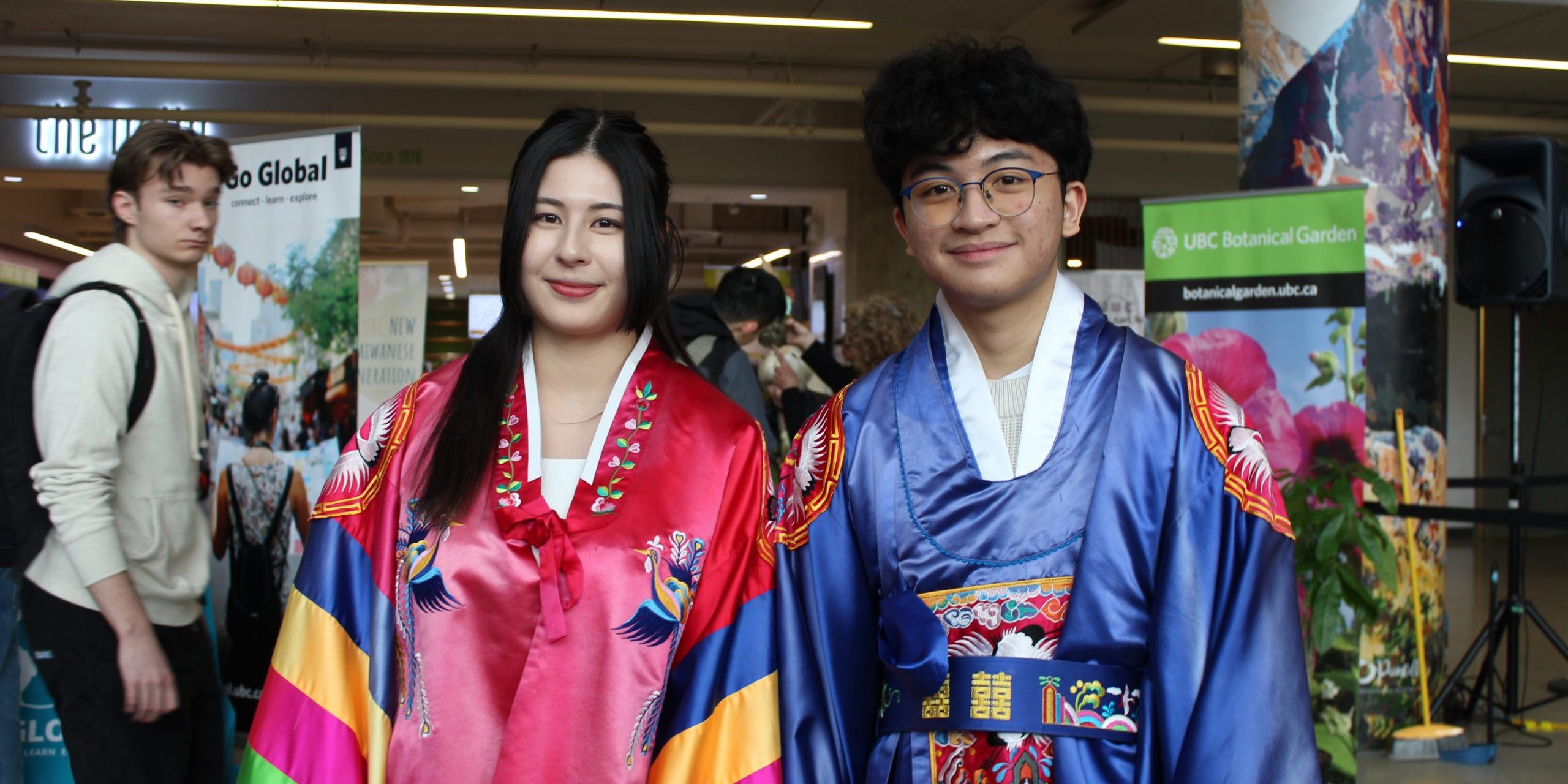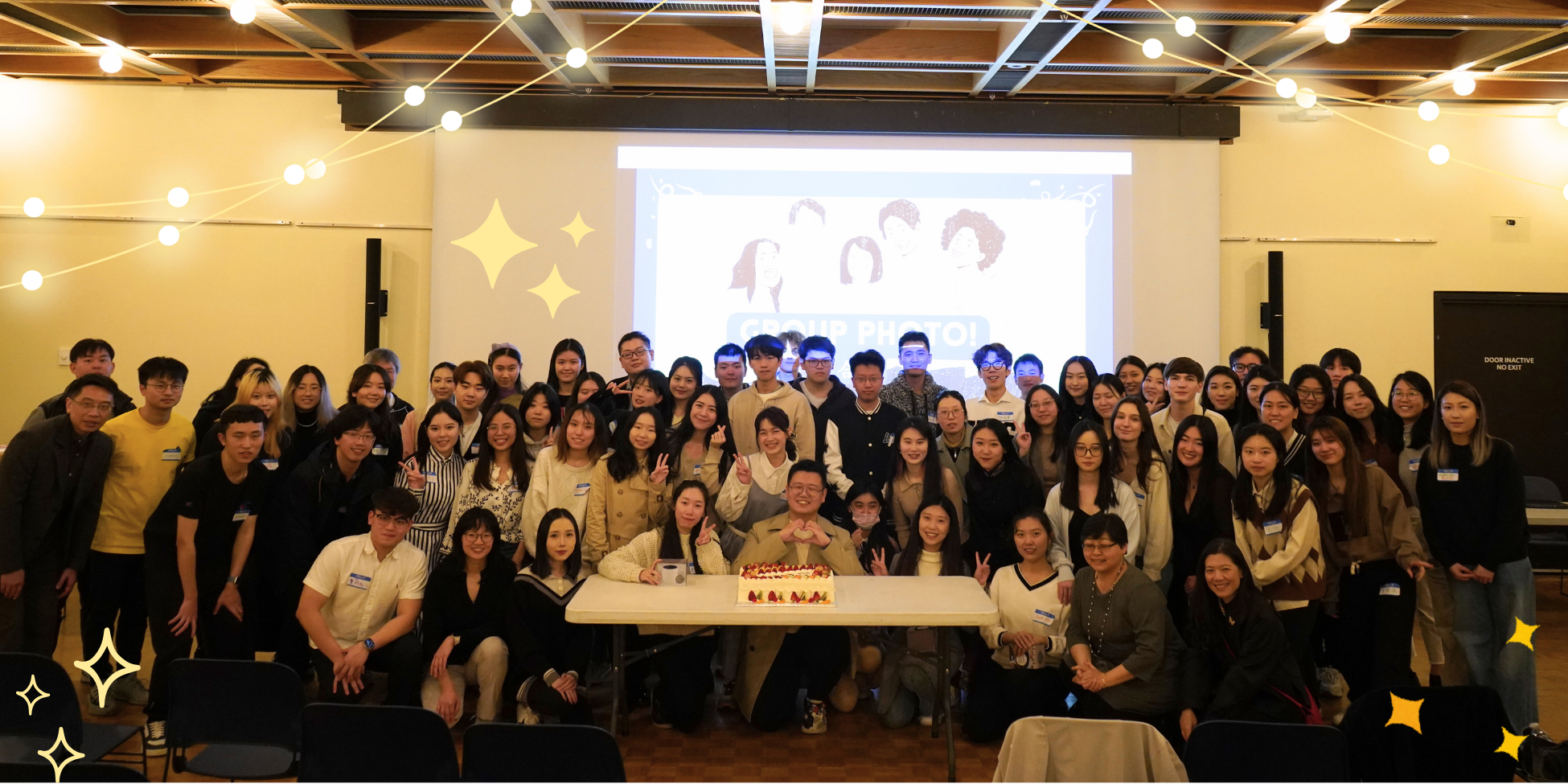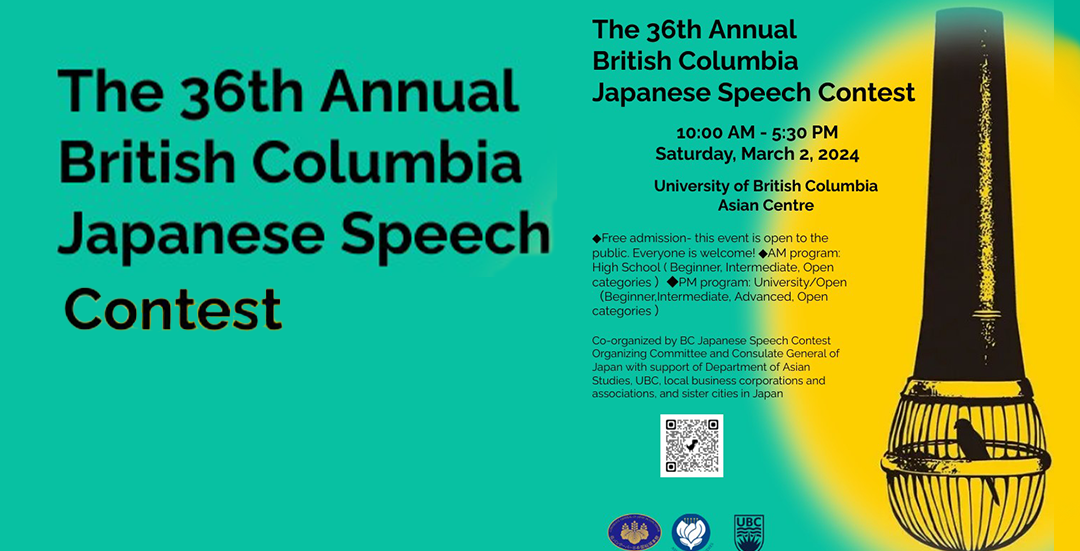

With its long-lasting tradition and aesthetic power, classical Chinese poetry has been appealing to numerous people for thousands of years. The UBC Chinese Language Program (CLP) not only offers a wide range of courses on the poetic corpuses, but also extends its reach to wider learning communities through the literary resonance of classical Chinese poems. Last term, Dr. Xueshun Liu of the CLP organized a series of curated lectures and events with his students to promote classical Chinese poetry to those interested in poetic cultures from such communities as University Neighborhoods Association. The lectures and events were designed with community outreach and accessibility in mind, aiming to help a wider audience deepen their understanding of classical Chinese poetry. At the same time, the lectures also provided an ideal platform for undergraduate students to hone their skills in public presentation and community engagement.
The public lectures played an important role in showing community members how to appreciate classical Chinese poetry in an imaginative and multifaceted way. Mentored by Dr. Liu, Elina Xu and Xuan Gu hosted the first lecture titled “How Many Hamlets Are There in One Poem” back in October to demonstrate the possibility and richness of multiperspectival appreciation of a few poems. Continuing Elina and Xuan’s efforts, Dr. Liu, Yuanfei Shang, and Lumos Zhan gave a second lecture last December on how to analyze the rich connotations of allusions in classical Chinese poetry with the guiding question: “Can different poets use the same allusion in different poems to express different feelings?” Both lectures succeeded in teasing out the nuanced meanings of classical Chinese poetry and widening the community audience’s understanding of the analyzed poems.
Multiple meanings behind a single character in a classical Chinese poem
Different poets’ varied uses of the same allusion
Considering that most participants did not receive academic training in classical Chinese poetry, the hosts attached great importance to increasing the accessibility of the lecture contents and enhancing the audience interaction. On the one hand, Elina and Xuan used the play Hamlet, with which the audience was more familiar, to discuss the kaleidoscope of meanings inherent in a single classical verse. On the other hand, Yuanfei and Lumos adopted the form of a conversation with Dr. Liu to deliver the lecture in an engaging and interactive way.


Yuanfei Shang and Lumos Zhan presenting with Dr. Xueshun Liu
During both lectures, the hosts encouraged the participants to actively engage with classical Chinese poetry. For instance, in their first lecture, Elina and Xuan not only provided audio tracks for some poems, but more importantly also invited audience members to intone certain verses together to gain a first-hand experience of the rhyme patterns. During their presentation, Yuanfei and Lumos frequently guided the audience members to identify the use of allusions on their own by posing hinting questions and providing contextual clues. In this way, both lectures fostered the community members’ confidence in interpreting classical Chinese poetry. By attending these lectures, the audience realized the considerable vitality and interactivity of classical Chinese poetry and gained further appreciation of these charming verses.
“It is amazing when we try to appreciate another culture through a different language.”
Anonymous attendee
“I want to learn more about Chinese history to better understand Chinese poems!”
Anonymous attendee
Through curating the lectures, both professors and students at UBC gained a better understanding of how community members outside academia appreciated and approached classical Chinese poetry. Thanks to the preparation process, the presenters themselves also came up with new perspectives on familiar poems with an enhanced awareness of the audience’s learning experiences. Audience members from communities beyond UBC in turn learned about refreshing takes on classical Chinese poems from experts of different generations and backgrounds. The lectures and events made significant contributions to extending the poetic culture and appreciation to wider communities of learners. They functioned as unique platforms for both presenters and participants to embrace diverse perspectives and form meaningful conversations within the context of community learning.





